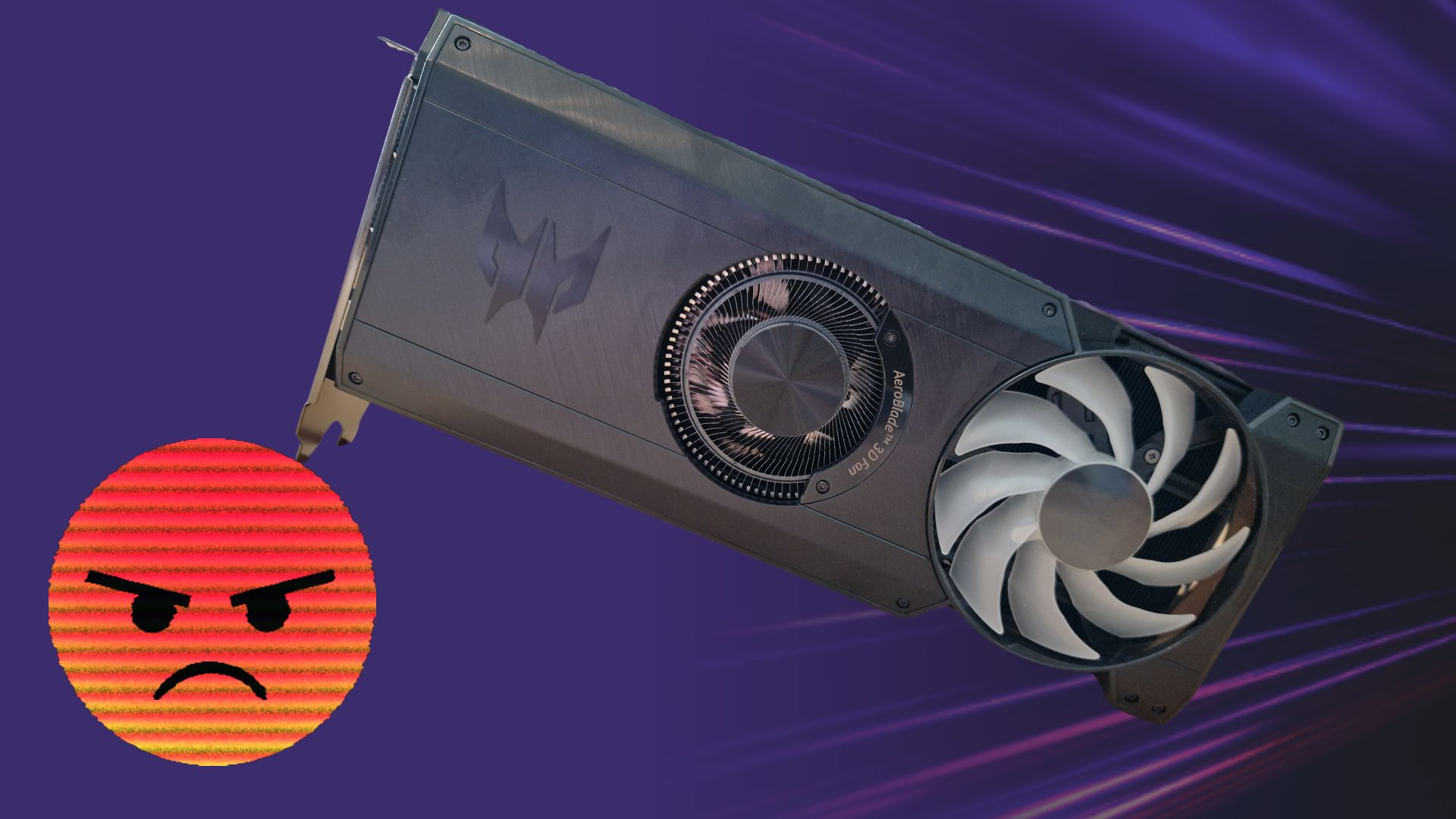
When I tell people that my GPU of choice is a custom 16GB Intel Arc A770 card by Acer, they're usually a bit surprised. It's like they think "You're a hardware editor, surely you know better than to use a graphics card not made by Nvidia".
Honestly, that's exactly why I do use it. Nvidia and AMD may have a rivalry in the best graphics card scene, but Nvidia still holds a massive majority of the market in the palm of its hand. While it undoubtedly produces better software, impressive ray tracing support, and more robust architecture overall, it also has no problem with hiking up its prices to reflect all of that.
Having such a clear frontrunner in a market like this doesn't breed value for the consumer, or the competition which brings innovation. For those reasons, I'm happy to back the Intel underdog.
As you'll know if you check out my Acer Predator BiFrost Intel Arc A770 review, it's no slouch. In truth, I absolutely adore this graphics card. I play games pretty much exclusively at 4K, and the A770 has no problems at all producing well over 60fps in all of them. Most recently, I've been playing Alan Wake 2, and although I don't play with maxed-out settings, it very comfortably gets over 60fps despite handling all of Remedy's technically demanding visual effects.
Its 16GB of VRAM gives it a lot of room to gallop at 4K, even if its kryptonite is turning Ray Tracing on, and it doesn't have any DLSS 3.0 frame generation to speak of. Beyond being a supporter of value, the A770 just is a brilliant graphics card for gaming. It's a real shame that it isn't found in more of the best gaming PCs.
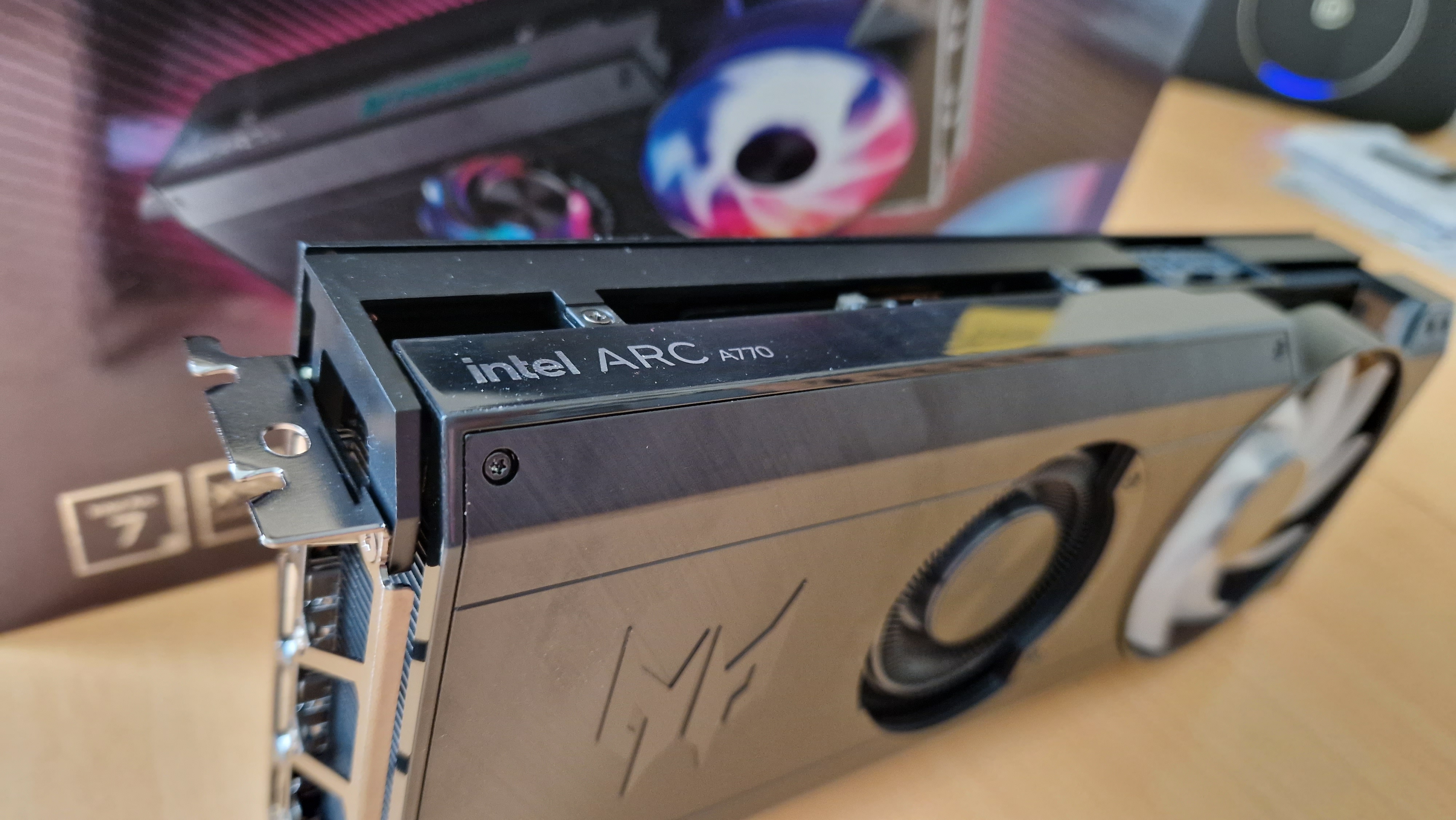
Driver confusion
With all of that said, Intel's game-on driver updates continually make me want to jam a fork in my eye, give it a good swirl, and promptly pull it back out. Update after update, there's simultaneously better performance unlocked in the games I play, but also the most frustrating bugs imaginable.
The problems seem to stem from the fact that despite being an Intel-bred GPU, the brand has said in forums and its messaging that people with the Acer Predator BiFrost variant should download and use drivers from Acer. To me, this is utterly bizarre, and neither I nor my fellow hardware editor Phil have heard of another board partner card needing its own bespoke drivers. In simple terms, even if you get a PNY GeForce RTX 4070 Ti, you still use Nvidia GeForce drivers for it.
Phil and I have come up with a working theory, however. This may be due to the fact that custom Intel Arc cards don't natively output an HDMI 2.1 signal, as reported by PCGamer a while back. While they do officially support HDMI 2.1, they use a PCON (a protocol converter inside the board) to turn a DisplayPort signal into HDMI 2.1.
This could explain why Acer needs to supply its own drivers - each converter within partner cards will need its own firmware patched in depending on how a brand has designed things.
Frustratingly, Acer has its own download page for drivers which says "It is important to keep your graphics card drivers and software up to date", but the last driver update it offers is from late October. In honesty, Acer's own drivers haven't been the best anyway, with one in particular causing abnormal fan speeds. Anyone wanting A770 driver support for the latest games can't rely on now months-old patches, and from lurking around in A770 forums, it doesn't seem like anyone does.
Naturally, if you want the best value for money out of this graphics card, you're going to download Intel's own game-on drivers, but this seems to cause a slew of bugs for Acer buyers.
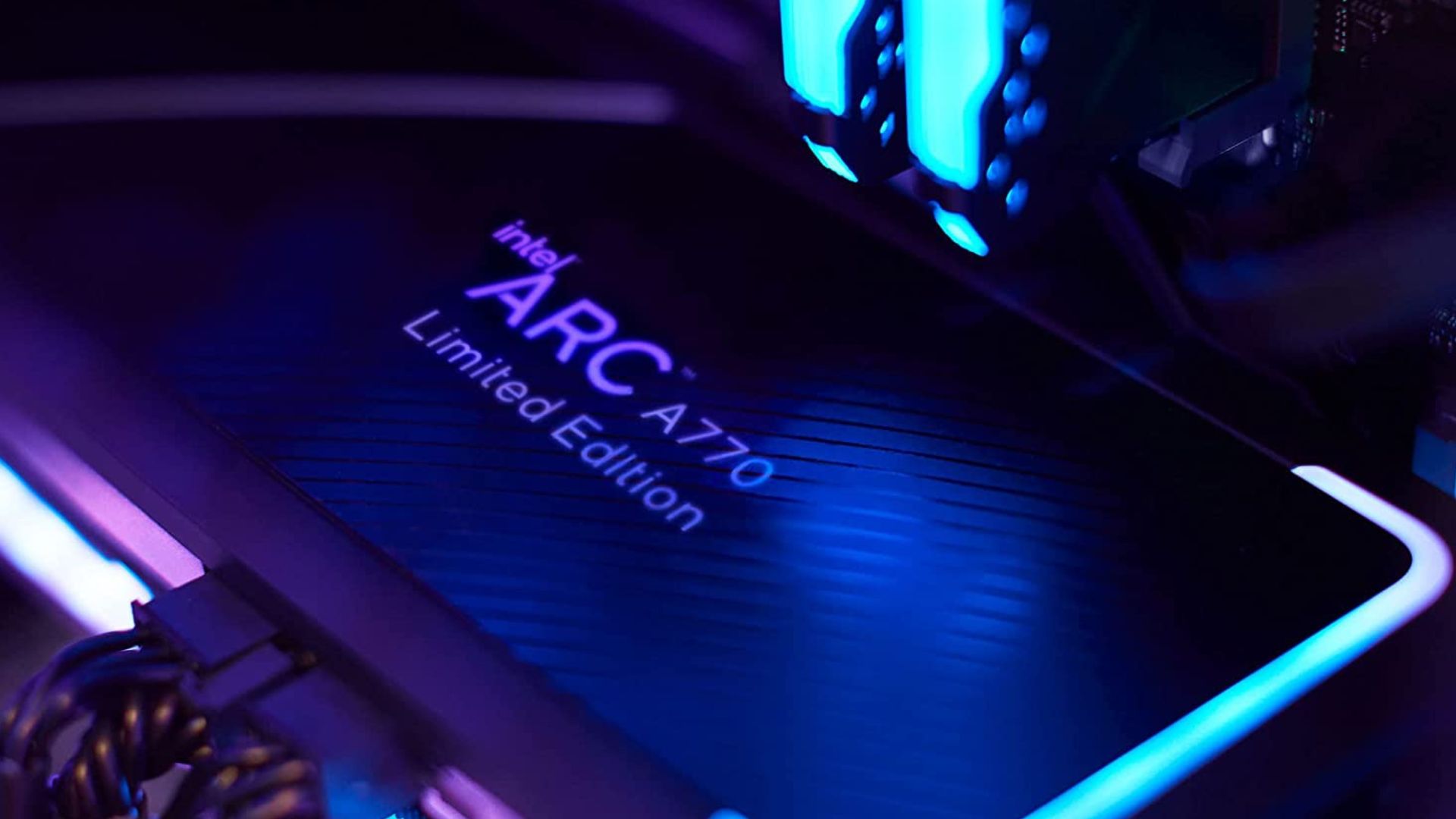
The bugs
I, myself have encountered a slew of these which continue to persist patch after patch. Going off of our HDMI conversion theory, a lot of these actually could be explained by linking back to syncing issues. In simple terms, they suggest that there's an issue with the way the on-board PCON is handling signals.
For starters, I get the most irritating HDMI flicker where occasionally on booting up my PC or launching a game, the display from the HDMI side will start strobing at me, just about giving me a migraine. Sometimes, this flicker is actually a welcome sign, because the alternative is the display just blacking out completely.
Then, there are the pesky annoyances with the driver updates themselves. For starters, there are multiple Intel pages online where you can download the latest updates. Intel Driver & Support Assistant and Intel Arc Control are two bits of companion software that are supposed to download with each update, giving you a central and official way to download each new patch. Annoyingly, they don't always install with the updates as they're supposed to, and since there's no way to separately download and install the Control app, you can be left with no way to access basic features.
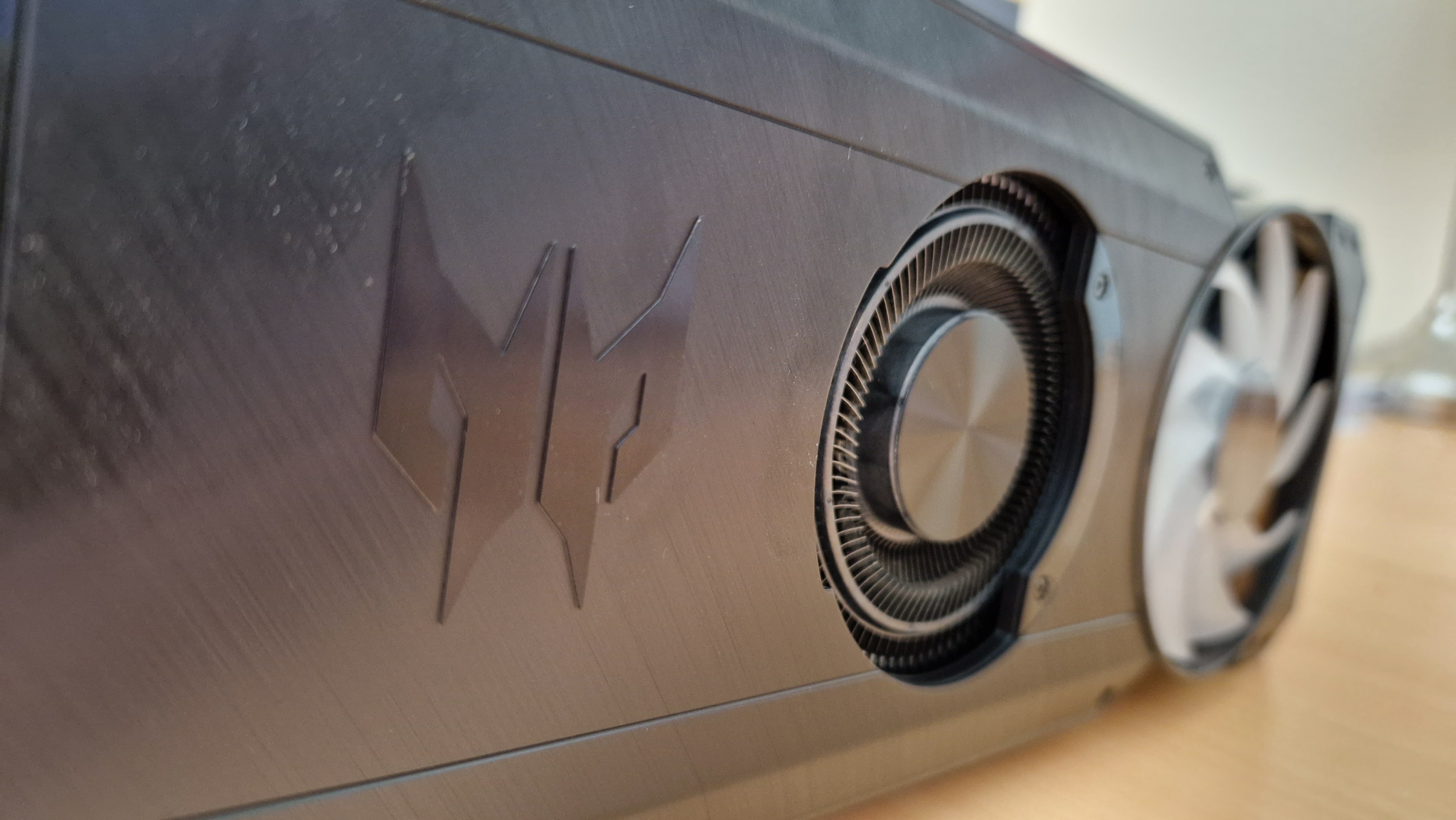
Even if you do download and install drivers through the Control app, it often leaves remnants of the former patches in your PC's storage, which can seriously impact performance in-game. I've experienced faulty textures and reflections, games straight-up not running, and sometimes up to 30fps drops compared with previous updates. In fairness, it's always recommended that you remove all previous GPU driver versions when updating them, but in testing plenty of graphics cards in the last year, I've never faced issues like I have with this A770.
For updates to this card, I do a fully secure boot into safe mode, open DDU (Display Driver Uninstaller) and do a full clean. This makes the whole process a total faff, but it is what Intel advises when any of these issues have been reported online.
There are more general-use issues too, because sometimes when using my Razer Kiyo Pro Ultra webcam in a Google Meet, my displays will black out for no reason, before returning about 7 seconds later. Editing video is impossible for me at the moment too, because no matter the settings I change, Adobe Premiere Pro won't preview any footage as anything more than solid green blocks. In previous driver updates my PC has even frozen and crashed when I've tried to export simple videos.
What happens next?
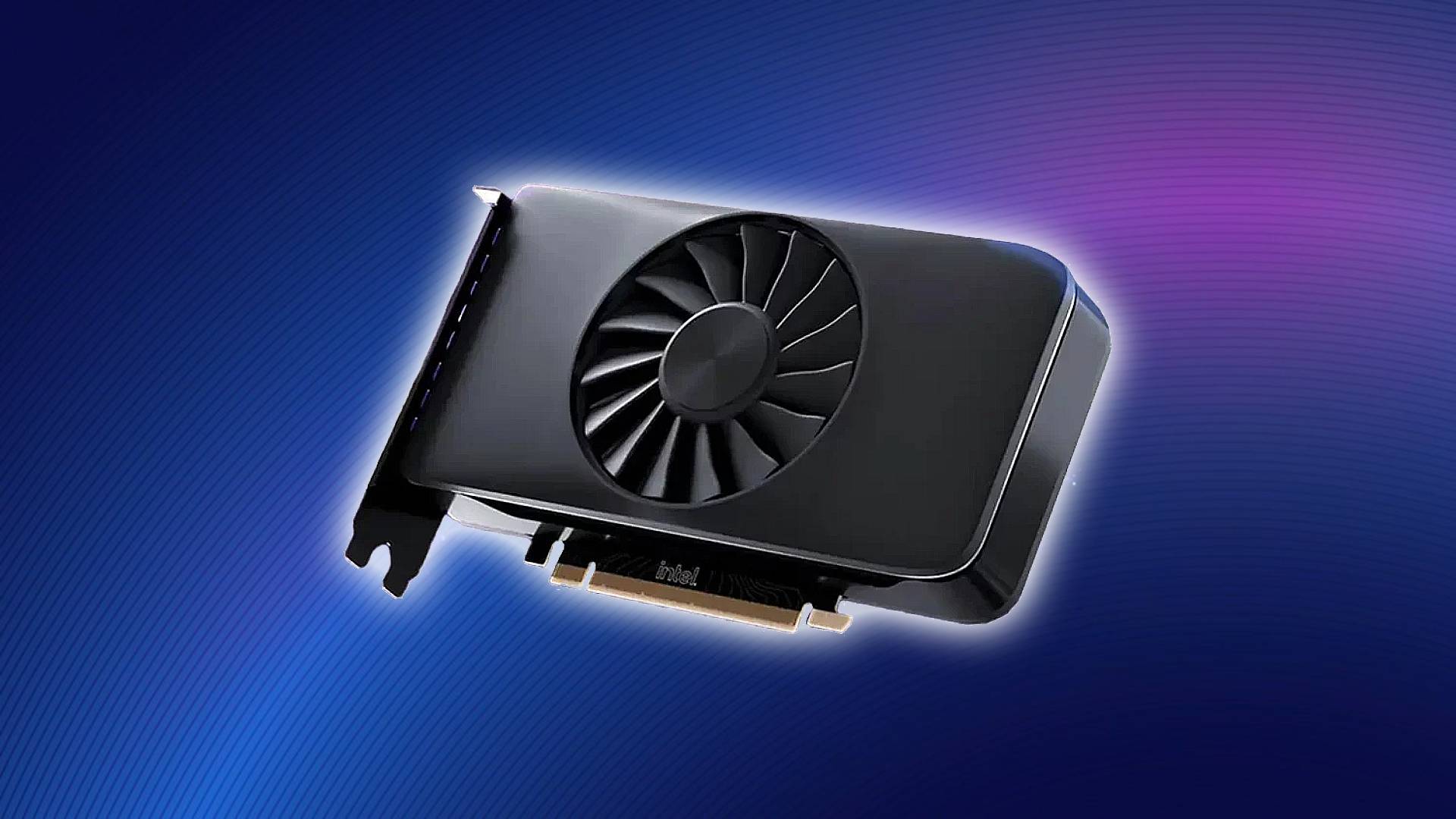
I honestly feel bad writing all of this up because I want Intel and its GPU partners to do well. Like I said at the beginning, I love this board, and I'm super happy with how it handles games at 4K, despite being looked down on by so many Nvidia users. Nonetheless, these consistent bugs and annoyances need to be sorted out if Intel wants to convince consumers to return next generation.
If our theory is in any way true, using DisplayPort instead of HDMI could be a big solution. It would seem as though Acer not updating drivers for its own card may be to blame here, but in fairness, it isn't and arguably shouldn't be Acer's job to make graphics card drivers. We've reached out to Acer for comment, and we're awaiting a response. Should we hear more, we'll update you.
The thing is, the constant updates Intel has shipped in the last year for Intel Arc cards are quite reassuring, and for the most part, have really improved things. The reason Intel's patches won't fix the bugs with Acer's variant is that the company uses an integrated solution for its Limited Edition GPUs. In other words, their patches don't target Acer's specific issues.
Just last week, the Intel Arc team responded to a Gamers Nexus video and told the YouTube channel that creating driver updates for graphics cards is a "continual labor of love", saying that plenty more DirectX11 and 12 updates will come in the months ahead. If Intel's dedication to the Arc cards since launch is an indication of how the upcoming Battlemage ones will be crafted, I think we're in for something really special.
Hopefully, for Acer Predator BiFrost A770 owners, these bugs and strange firmware disparities can be sorted out somehow. I want to see this brilliant product be supported so it can get the praise I think it deserves.
Keep up with more PC components by checking out the best CPU for gaming, the best RAM for gaming, and the best PC cases.







